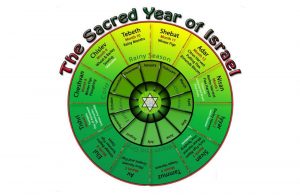Table of Contents
Jews are the oldest group with their national identity and cultural heritage intact. Still, their turbulent history has held them from matters related to pedigree documentation. However, in recent years, Jewish genealogy has become a popular hobby, as evidenced by popular genealogy programs.
Tracing your Jewish background can be a major step in knowing yourself better and understanding the circumstances that your ancestors faced.
Besides, Jewish genealogy gives you a direction on your culture, beliefs, and identity in society. And with the intricacies involved in such an endeavor, experts at Record Click are ready to give a hand.
Key Takeaways
- While researching your Jewish genealogy, it’s wise to understand that not every detail you come across may be accurate.
- The first step is gathering information from your relatives about your family and ancestors.
- If you have Jewish heritage and are concerned about taking trips for information, we can help you narrow down the options and quickly determine your ancestors and their origin.
Brief Jewish History

Jewish Calendar
Jews have a long history, and we may only capture a snippet in this guide. The turbulent part of Jewish history has dramatically affected Jewish genealogy but luckily left reliable records that you can use to track your Jewish heritage meticulously on a family tree.
Going back to the 6th century, we recall the torturous captivity Jews endured under Babylonians. They later faced Roman occupation, the Crusaders, and the Mamluk period.
As if that was not enough, Jews were subjected to pogroms and unfair laws in Europe, leading to massive displacement to Britain and the US. Little did they know that they would again suffer annihilation under the horrific Nazi regime.
Despite the tragic history associated with the Jewish people, they’ve become influential in the economy, culture, and science. In fact, you’re likely to discover lasting marks in history that emanate from brighter moments in Jewish history.
Jewish Genealogy Research Overview

Army veterans
Despite the turbulent history, Jewish genealogy remains a possibility, but that is not to say it’s a walk in the park. The chances of a gentile finding a comprehensive family tree of their family back hundreds of years are higher than for Jewish.
Nonetheless, Jews can trace their family tree back to the late 19th century during the immigration period. Available records in American countries indicate the immigrants’ or their parents’ names.
While researching your Jewish genealogy, it’s wise to understand that not every detail you come across may be accurate. Information in the past was not as well documented as it is now.
The ancestors barely knew their birth dates or parents’ full names. Besides, even if they knew this information, it may have been missed by the unreliable logistics used then.
Steps to Detailing Your Jewish Genealogy

Understand your genealogy
For most people, genealogy research requires compulsion lest you get lost in the bushes. While there are many ways to track your genealogy, a retrospective approach has proven most successful.
Most of the resources you need are freely available online, but you may need to pay some fee if you want to take it further.
Another important step when tracking your Jewish genealogy is tracking the ancestors and their siblings. The additional information will help you verify records, mainly names used across the family.
1. Start at Home
Since we recommended starting with the present and going back in your Jewish genealogy research, you should start with the most convenient records. Look for documents in your house or house used by your relatives.
Be sure also to ask them about your ancestry, and they may provide leads to your research. The records you will likely find include invitation cards, birth certificates, pay slips, identification cards, and more.
2. Vital Records
While the records or information provided by your relatives may not be specific, it can help kick-start your Jewish family tree. However, when you want details for all your ancestors across generations, you may need to dig further for vital records like census records and birth, marriage, and death records.
For example, the Social Security Death Index (SSDI) provides valuable information about people who died as early as 1937. So, you should know the date of birth, death date, and residence of your US Social Security Number-holding ancestors who died within that time and had a.
3. Hire A Professional Genealogist

Professional Genealogists leave nothing to chance
With most Jews having migrated from a different region, extensive research across countries can be time-consuming and frustrating, especially when you follow a false lead.
Many have been researching their genealogy for years and still have more to discover. The urge to discover your Jewish heritage sometimes comes across brick walls like a language barrier or other barriers that keep you stuck.
Luckily, we have a team of experts in the field who’ve performed thousands of genealogy projects for decades. Our professional genealogists will give you a head start and help you overcome any obstacle holding you back from identifying your Jewish heritage.
It would be a hassle to commute to all the archives in Israel, Turkey, the US, etc., looking for records regarding your grandparents who lived back in the early 90s. Instead, research conducted by Record Click specialists would identify even closer relatives who would guide your lineage better.
Tracking your Jewish genealogy involves detailing the full names of every person connected to you. The family tree has proven most effective in expanding your family details with you as the root. Download free family tree samples and make family research a study and a fun activity in your living room. Every space in the family tree should include the person’s full name, special dates like birth and death, and other relevant information.
Why You Need A Professional Genealogist

Accurate and comprehensive genealogy can be transformative
Only a professional genealogist can perfectly navigate the national library and quickly track your story. They also come in handy when you want to ensure you get everything right during citizenship application by descent.
However, it’s advisable to contact your state’s consulate general office for directions on the application process, especially regarding descent, application fee, and duration. Of course, the first step in the citizenship application process starts by visiting the state’s consulate with your genealogy information and records.
If you have Jewish heritage and are concerned about taking trips for information, we can help you narrow down the options and quickly determine your ancestors and their origin.
Contact us and share with genealogy experts about which project fits your needs.







